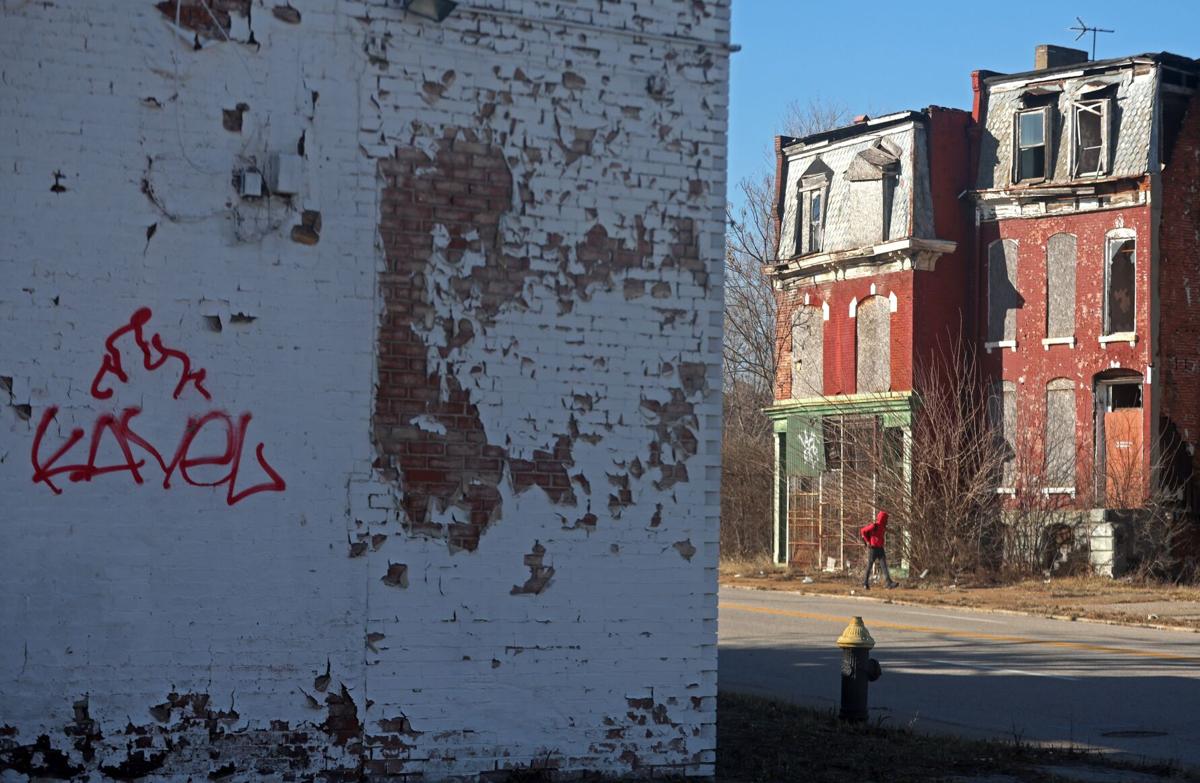JEFFERSON CITY ÔÇö A measure that could force ├█ª┐┤½├¢ taxpayers to pay off developer Paul McKeeÔÇÖs lender should the city acquire his property through eminent domain was roundly criticized at a state Senate committee hearing Tuesday.
A tailor-made government bailout for one bank is how Peter Hoffman, managing attorney at Legal Services of Eastern Missouri, characterized the bill, which is sponsored by Sen. Nick Schroer, a St. Charles County Republican.
ÔÇ£(ItÔÇÖs) a special piece of legislation designed to compensate one single lender who provided a questionable loan to a disreputable developer,ÔÇØ Hoffman told the committee. ÔÇ£Now that the development has failed ÔÇĞ it has come to Jefferson City asking for a bailout.ÔÇØ
ÔÇ£Requiring taxpayers to bail out failed real estate development sets a bad precedent for community projects throughout the state,ÔÇØ Hoffman said.
People are also reading…
Hoffman helped craft the that grants the city the authority to take some of McKeeÔÇÖs properties through eminent domain. Those properties are mostly clustered around the new National Geospatial-Intelligence Agency campus, which is nearing completion.
At the hearing, Hoffman didnÔÇÖt name McKeeÔÇÖs company, NorthSide Regeneration, or his lender, Bank of Washington. But others did, including the cityÔÇÖs top development official.
ÔÇ£McKee has left the properties he has acquired in a state of disrepair. TheyÔÇÖre vacant and overgrown. The buildings that were once standing are now fallen. They are a breeding ground of crime and unsafe conditions,ÔÇØ said Neal Richardson, president and CEO of ├█ª┐┤½├¢ Development Corporation and executive director of the cityÔÇÖs Land Clearance Redevelopment Authority, or LCRA.
The LCRA is eliminating blight and spurring redevelopment and can use eminent domain to this end.
ÔÇ£In the cases of the vacant property, if itÔÇÖs owned by NorthSide Regeneration, you have the whole wall thatÔÇÖs falling down and a toilet hanging out,ÔÇØ said Sheila Rendon, a lifelong resident of the ├█ª┐┤½├¢ Place neighborhood.
ÔÇ£We never asked for our neighborhood to be targeted for crime, arson, drug use, homicide,ÔÇØ Rendon said. ÔÇ£ThatÔÇÖs what these properties are being used for.ÔÇØ
Jerry Carmody, an attorney who represents the LCRA in ongoing litigation with Bank of Washington and worked on the NGA land acquisition, said it would have been impossible to acquire the 100 acres needed for the NGA project under the terms of SchroerÔÇÖs proposal. The city would not be able to afford the properties if it was also responsible for the mortgage debt.
Carmody said SchroerÔÇÖs proposal was directly connected to McKeeÔÇÖs NorthSide Regeneration project:
ÔÇ£The Bank of Washington lent millions and millions of dollars to acquire properties for the NorthSide Regeneration project,ÔÇØ said Carmody. ÔÇ£So weÔÇÖve got the bank and weÔÇÖve got NSR sharing the proceeds, getting the money and handouts ÔÇö subsidies, tax credits. Now we just want to say, ÔÇİLetÔÇÖs have all the liens paid for.ÔÇÖÔÇØ
No one testified before the committee in support of the bill.
Schroer told the committee the bill was intended to ÔÇ£mitigate the financial risk borne by banks in blighted areas.ÔÇØ
ÔÇ£When a city seizes property owned by a developer without adequately compensating for the mortgage lien, the burden of financial loss ultimately falls squarely on the bank,ÔÇØ he said.
Schroer argued this creates a disincentive for banks to invest in communities in need of revitalization.
The St. Charles County Republican originally filed the legislation after the ├█ª┐┤½├¢ Board of Aldermen approved a new redevelopment area surrounding the NGA, which allows the city to acquire unoccupied land and properties with code violations.
Bank of Washington could lose out on repayment if the LCRA acquires NorthSide Regeneration properties by eminent domain and the land is valued at less than the bank is owed.
TuesdayÔÇÖs hearing was scheduled after an earlier attempt by Schroer to advance his measure as an addition to a larger bill, which led to a heated argument on the Senate floor between Schroer and Sen. Karla May, D-├█ª┐┤½├¢.
ÔÇ£These big-time developers come in and get millions of taxpayers money ÔÇö millions ÔÇö and do nothing to the land, and try to wait for some other things to happen in order for them to get a big payday,ÔÇØ May said at the time. ÔÇ£And then large tracts of our community look like Third World countries.ÔÇØ
This legislation is Hous Added after the legislative term ended: The bill did not have a vote in committee after the April 2024 hearing.
View life in ├█ª┐┤½├¢ through the Post-Dispatch photographers' lenses. Edited by Jenna Jones.















